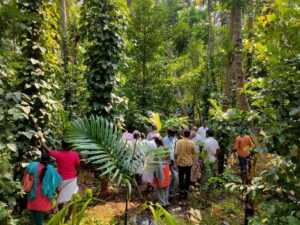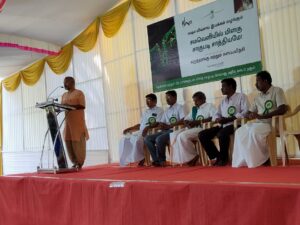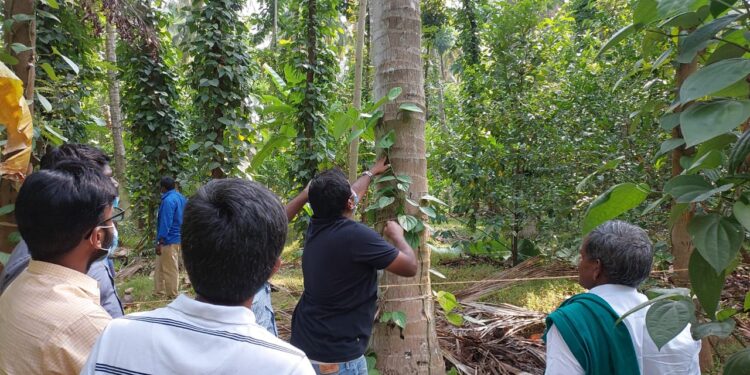NE AGRICULTURE BUREAU
COIMBATORE, FEB 21

At a time the Centre and state governments have been taking various meaures to increase the income of farmers, a silent movement has demonstrated that intercropping of ‘Black Gold’ in teak, coconut farms yields rich dividends.
Cauvery Calling, a movement by the farmers and for the farmers, on Sunday announced that it has conducted a training programme for farmers to earn Rs 50,000 to Rs 5 lakh per acre per annum by adopting pepper cultivation in plains.
Cauvery Calling organised the training programme for 600 farmers to demonstrate the economic success of cultivating pepper- considered a hill crop- in the plains.

According to the state field coordinator of the Cauvery Calling Movement Tamilmaran, “Most farmers can only cultivate pepper in the hilly areas. They think that pepper does not grow in the plains. However, in districts like Pudukkottai and Cuddalore, many farmers have been successfully cultivating pepper in the plains for more than 10 years. They have demonstrated that by cultivating pepper in the plains, one can earn an additional profit of Rs 50,000 to Rs 5 lakh per acre annually.”
Cauvery Calling held the training programme at Vettaikaranputhur, Pollachi and it was helmed by the farmers who pioneered pepper cultivation in the plains. The training was imparted by four farmers from Pudukottai — Balusamy, Rajakannu, Bakiyaraj, Senthamil Selvan — Thirumalai from Cuddalore. It was held at the farm of Valluvan, a highly successful farmer who has adopted tree-based farming and took to pepper cultivation after attending a similar training program organized by Isha.
Around 600 farmers from more than 20 districts of Tamil Nadu, including Coimbatore, Tiruppur, Erode and Salem participated in the training program — Pepper Cultivation in the Plains.
Tamilmaran said that his team visited these farms to understand the techniques and methods of pepper cultivation before initiating training programs for farmers. He said his team has been conducting these programs for the last five years.
“Hundreds of farmers participate in each training program. The owner of the farm where today’s training is taking place, Valluvan, also participated in one of our training sessions. He started cultivating pepper by intercropping among coconut and timber trees and found great success. Last time he got a yield of 400 kg per acre.,”
Tamilmaran revealed and encouraged the audience to take to pepper cultivation without hesitation. “We advise all district farmers to cultivate pepper on an experimental basis. If the pepper plant in the ground starts to grow well, we advise them to expand more. Pepper vines climb on teak, mahogany and coconut trees. It will be very helpful for the pepper growers to look at the extra annual income even before they start getting the income from the timber trees after 5 to 10 years later,” he said.
Tamilmaran said that pepper begins yielding in the 4th or 5th year. “They get yield from 100 kg to 1000 kg per acre per year. Even if it sells for Rs 500 per kg, it can fetch an additional profit of Rs 50,000 to Rs 5 lakh. Apart from this, you will get an additional source of income from coconuts and other intercrops,” he told his audience.
Valluvan shared with the farmers about the efficacy of intercropping between coconut trees and his experiences in pepper cultivation.










